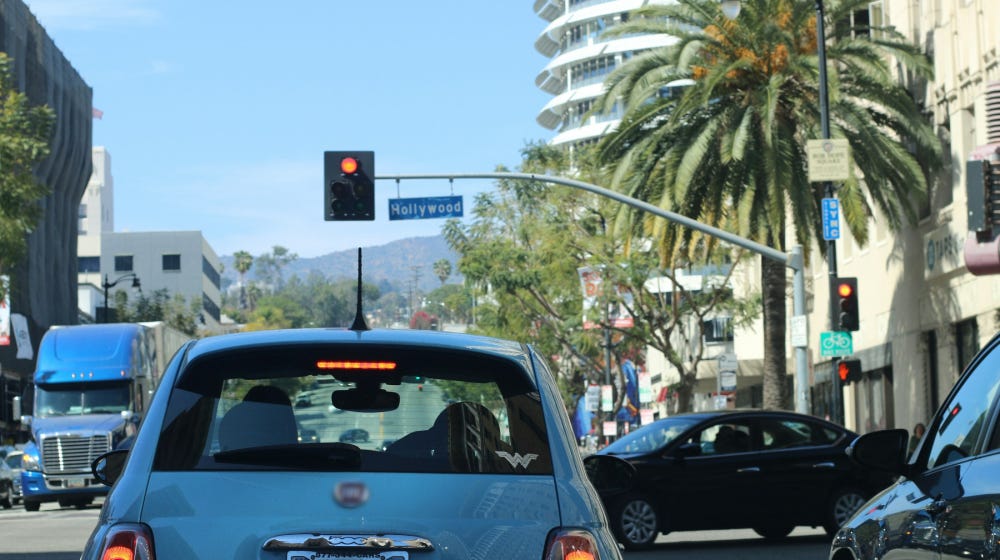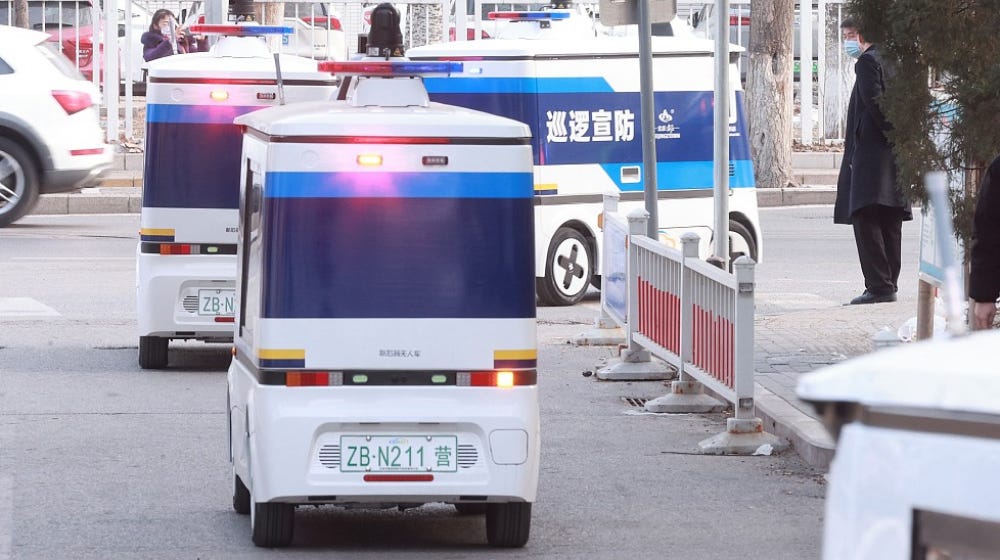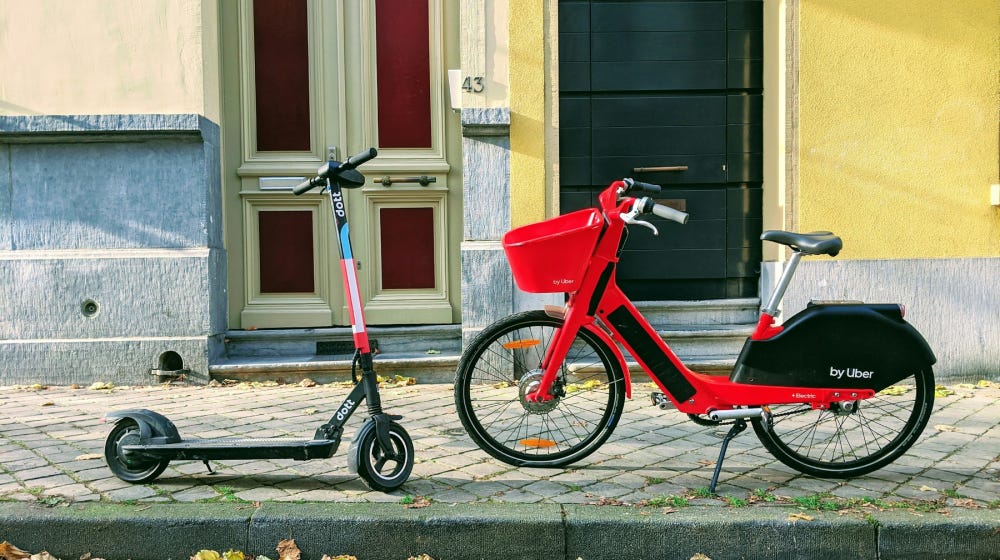There were plenty of unflattering headlines about autonomous driving last year, notably concerning Cruise, the GM subsidiary that got its permit revoked in California after a number of embarrassing mishaps. And yet, as the first few weeks of 2024 have shown, driverless technology will continue to progress with or without GM –– or TuSimple, for that matter.
For instance, after releasing data showing that its cars only caused three injuries over 7.1 million miles, Waymo is now aiming to expand into Los Angeles. In China, autonomous driving is not just replacing drivers –– but cops. And in Las Vegas, German car-share startup Vay shows that driverless does not have to mean autonomous.
Also: Atlanta approves a $2,000 e-bike subsidy, Stripe champions commuting by boat, Boise seniors can now get free door-to-door rides, Evanston, Ill. shows how to cut down on car crashes, and a new report on micromobility offers reasons to be optimistic about the future of shared mobility, despite the struggles of major brands like Bird.
Finally, check out the latest episode of the Fast Foward podcast –– CoMotion founder John Rossant talks about the big mobility trends of 2024 with Seleta Reynolds, the chief innovation officer of LA Metro, and the inimitable venture investor Olaf Sakkers.
What you need to know

Waymo seeks LA expansion: Alphabet’s driverless subsidiary, which has been operating a driverless ride-hail service in San Francisco since last summer, has submitted an application to the state’s Public Utilities Commission to do the same in Los Angeles. Compared to rival Cruise’s humiliation, Waymo’s own experience in San Francisco has been comparatively uncontroversial, and last month it released data showing that its vehicles had only been involved in three crashes that resulted in injuries (all moderate) in 7.1 million miles of driving -- which Waymo claims is 6.7x fewer than the typical human driver would have caused.
And yet, even if Waymo has performed well, regulators and political leaders in California may be hesitant to approve another expansion of AVs after the Cruise debacle.
The Big Mobility Trends to Watch
In the latest episode of CoMotion’s Fast Forward Podcast, John Rossant, CEO of CoMotion, is joined by Seleta Reynolds, Head of Innovation at LA Metro, and Olaf Sakkers, mobility thinker and partner at RedBlue Capital, for a discussion on everything the coming year in mobility has to offer. Tune in now.
Atlanta goes big on e-bike subsidies: The Atlanta City Council votes to approve $1 million to provide heavy discounts for residents to buy e-bikes. Those who have incomes below a certain threshold ($54,000 for a single person or $77,000 for a family of four) will qualify for a $1,500 discount for a standard e-bike and $2,000 for a cargo e-bike.
Remote-controlled car rental: German startup Vay launches a novel form of car-sharing in Las Vegas, where remote operators will drive the car to a rental customer, who then takes the wheel. Founder Thomas von der Ohe says this model is more feasible, technologically and economically, than fully autonomous ride-hailing.
The Magic City awaits!
Join us on May 6-7 for CoMotion MIAMI, The Next Wave: Integrating Innovation as we bring together key stakeholders driving the Mobility Revolution - global mayors and municipal leaders, public transport operators, technology founders and disruptors, VC investors and established players.
Get your pass today and Save 50% off
Interested in partnering? Our global mobility gatherings in LA, MIAMI, and Monaco offer unique opportunities to grow your brand and connect with ground-breaking companies. Get in touch.

A new era of boat commutes? Financial services firm Stripe is partnering with electric boat startup Navier to help some of its employees in the Bay Area get to work faster. At the beginning, at least, the pilot will be very narrow: Employees who live in Larkspur, Calif. will have the option to get a ride in a six-seat vessel to the Oyster Bay neighborhood of San Francisco, where Stripe is based, that will take about half as long (30 minutes) as driving there. However, Stripe is continuing to analyze travel patterns among employees, with the hope of offering more aquatic commute routes in the future.

Driverless cop cars: What is the point of a police car without a police officer? The government in Beijing is testing out 15 unmanned police vehicles in the city’s autonomous driving demonstration area. The small rectangular robots will patrol around, providing surveillance, issuing warnings and making public announcements.
TuSimple’s trucks up for auction: If you’re in the market for a driverless big rig, TuSimple is selling ten of them later this month. Like many other mobility startups, the San Diego company has thus far failed to deliver on the sky-high expectations that greeted its IPO in 2021. It has recently decided to give up entirely on the U.S. market and pivot to Asia.
A boost for senior transit: Valley Regional Transit, which serves the rapidly growing Boise metro area, launches a new curb-to-curb free transportation service for those 60 and up. Customers can book rides in shared vehicles through an app or a phone call.
In this episode of our partner's podcast, 'Cities First,' host Scott Shepard chats with Thijn van Helvoirt, VC Investor at No Such Ventures, Founder of Check, also currently advises and invests in Dockler B.V. and other startups. They deep dive into the “Dutch Way” of investing in mobility. Tune in now.
What we’re reading

A look at the shared mobility landscape: The Shared Use Mobility Center releases its annual report on the state of industry. It notes that the use of shared scooters, bikes and other forms of micromobility have returned to pre-pandemic levels, but that access is threatened by the financial challenges faced by numerous operators. The report highlights a trend of “community-driven” services, either created entirely by or in partnership with local governments.
How a Chicago suburb reduced crashes: Next City takes a look at how the city of Evanston has dramatically reduced traffic injuries and deaths. You guessed it: the city reduced car speeds by narrowing roads and bolstering pedestrian and bike infrastructure. The safety it has achieved stands in stark contrast to its next-door neighbor, the city of Chicago, where traffic fatalities have risen.
The City’s urbanist makeover: The streets of London’s renowned financial district, where bicycles are now more common than private vehicles or taxis, are in the midst of a major overhaul. Some streets are being replaced entirely by pedestrian plazas, while others are being narrowed to make way for wider sidewalks and bike lanes. The changes reflect not just a shift in city planning, but changing travel patterns among London’s financial elite.
CoMotion's mobility goodness brought to you by:
Jack Craver,
Editor, CoMotion NEWS
jcraver@comotionglobal.com
Write to us if you would like to suggest content for our next newsletter!
YouTube | LinkedIn | Podcast | Twitter | Facebook




